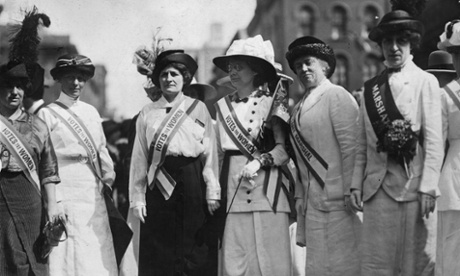
The suffragettes were a group of women who campaigned for the right to vote in the early 1900s. I never really knew who the Suffragettes were until I read Opal Plumstead, Jacqueline Wilson’s 100th book. It beautifully explains young Opal’s perspective on and opinions about female suffrage and explores her growing awareness of why women should have the right to vote.
The suffragettes, led by Emmeline Pankhurst, used violent tactics such as window breaking, arson, attacking politicians and more in order to be noticed and to spread their word about Votes for Women to the Liberal government of the time. The event that really got everyone talking and supporting the suffragettes, however, was the 1913 Derby. Emily Davinson, a suffragette, stepped out in front of the King’s horse during the race to show that she was serious about women getting the right to vote. Although she died four days later, she got the suffragettes noticed by many people worldwide. This is a great topic for International Women’s Day as it is about the women who fought for their right in order to achieve equal votes as men. They wanted votes because they knew it was such an important step to securing a better standard of living.
Opal Plumstead plunges into the world of the suffragettes and shows a young girl being convinced to become a suffragette when she is older. But it is also a balanced book, very sensitive to the complexities of the situation, and therefore does occasionally portray the suffragettes in a negative light as Opal’s mum, who is a traditional woman, is highly against the violent tactics the suffragettes used, calling them “shameful”. This gives readers two opinions of the suffragettes at the time. What stood out for me is that Opal is a very innocent child and her courage shines through when she speaks out and says: “the suffering of the suffragettes is terrible- but they are in a way self-imposed … their actions are surely ineffective”. This shows another perspective on the suffragettes: how they were seen as brave for speaking out but foolish for the ways they portrayed their beliefs.
Jacqueline Wilson’s book shows that feminism and equality are very important and that you should fight for what you believe in. In my opinion, this is what writers today should really focus their work on. Instead of writing about vampires, wizards and werewolves, children’s authors should really think about writing educational yet interesting books for children, such as when Wilson portrayed suffrage history in Opal Plumstead. It would be better if more authors wrote about the suffragists or the suffragettes as they were amazing role models for women.
Some may disagree and say that this was all in the past and women have the vote now, so why continue to write about it? I argue that we must write stories about the Suffragettes and other feminist movements partly because it shows what heights women have achieved, but it also really does still have an impact on the present day: women would not have the vote and there would be much more inequality had it not been for the suffrage movement. More books about this topic will increase the reader’s knowledge, inspiring them as well as entertaining them; Opal Plumstead was a very entertaining novel, but it also provided me with a lot of knowledge. Many may view feminism in a negative way because they may believe that it is just about women wanting more power. However, when we delve into books like this one, we can get a much better idea of why something is portrayed in a certain way.
Other book characters such as Katniss Everdeen from The Hunger Games and Tris Prior from the Divergent trilogy can also be seen as feminist characters who are strong, independent and don’t just rely on men. These characters are directly related to the Suffragettes, who also had very powerful ambitions and were determined to achieve their goals; without understanding their ancestors, how can we properly appreciate these modern characters? And this just goes to show that the aims and ideas of International Women’s Day can be expressed through any genre of book; it all depends on the personality of the characters.
This is the last article in our feminist long weekender which included a feminism live Twitter chat #Gdnteenfeminism on Sunday 8 March, International Women’s Day. If you missed it you can catch up here! We’ll be having another themed week or weekend soon. If you have ideas on what you want it to be about then email us childrens.books@theguardian.com.

